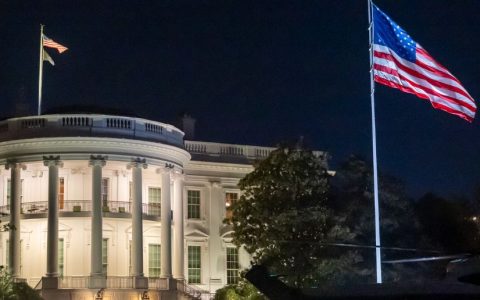
The White House’s deportation efforts have hit a snag. They’re tied up in the courts.
But a federal appeals court has handed down a huge ruling for a crucial Trump admin case.
A federal appeals court has authorized Trump administration officials to terminate deportation protections for tens of thousands of migrants from Central America and Asia. The 9th U.S. Circuit Court of Appeals issued the ruling late Wednesday, allowing the Department of Homeland Security to end Temporary Protected Status for about 60,000 individuals from Honduras, Nicaragua, and Nepal while legal challenges proceed.
The three-judge panel unanimously overturned a prior order from a Biden-appointed judge. Trump administration leaders celebrated the decision as a key step in upholding immigration laws and protecting American citizens.
“This is yet another huge legal victory for the Trump Administration, the rule of law, safety of the American public,” Assistant Secretary Tricia McLaughlin said in a public statement. “Temporary Protected Status was always meant to be just that: Temporary.”
“TPS was never meant to be a de facto asylum system, yet that is how previous administrations have used it for decades while allowing hundreds of thousands of foreigners into the country without proper vetting,” McLaughlin continued. “This unanimous decision will help restore integrity to our immigration system to keep our homeland and its people safe.”
With this court approval, the administration can now proceed to deport around 7,000 Nepalis whose protections lapsed on August 5, according to U.S. Citizenship and Immigration Services data. Similarly, some 51,000 Hondurans and 3,000 Nicaraguans face removal after their statuses expire on September 8.
Created under the Immigration Act of 1990, Temporary Protected Status provides deportation shields and work permits to foreign nationals in the U.S., including those who entered illegally, if their home countries face wars, natural disasters, or other crises that make return unsafe.
Critics have long argued that TPS has become permanent in practice, with extensions granted repeatedly over years. For instance, protections for Hondurans and Nicaraguans date back to 1999 following Hurricane Mitch, while Nepal joined the list after a 2015 earthquake.
Under DHS Secretary Kristi Noem, the Trump team has already eliminated TPS for nearly half a million Haitians, 350,000 Venezuelans, over 160,000 Ukrainians, and others, sparking multiple lawsuits from activist groups.
The recent appeals court action stems from a July decision by U.S. District Judge Trina Thompson in Northern California, a 2022 Biden appointee, who halted the terminations for these three countries and leveled sharp accusations against the administration.
“The freedom to live fearlessly, the opportunity of liberty, and the American dream. That is all Plaintiffs seek,” Thompson said at the time. “Instead, they are told to atone for their race, leave because of their names, and purify their blood. The Court disagrees.”
Wednesday’s ruling pauses Thompson’s block, enabling DHS to advance its enforcement plans. The lawsuit was filed by the National TPS Alliance, a coalition pushing for expanded migrant rights.
This development aligns with President Trump’s ongoing push to secure the nation’s borders, including mass deportations and stricter controls that have marked his second term since January. In the first 100 days alone, the administration ramped up enforcement at the southern border, deploying additional troops and initiating large-scale removal operations to fulfill campaign vows.
Trump’s border strategy builds on his first term’s zero-tolerance policy, which targeted illegal crossings with swift prosecutions, and has now expanded expedited removals nationwide to detain and deport individuals without lengthy hearings. By July, troop levels at the border surged from 2,500 to about 8,000, bolstering patrols and infrastructure.
On the national security front, the administration has invested heavily in military rebuilding, allocating over $2.2 trillion in defense spending to modernize forces and enhance cyber defenses, including elevating Cyber Command to a full war-fighting unit. These measures tie directly to border efforts, viewing immigration control as essential to countering threats from cartels and potential terrorism.
Further actions include reinstating the Remain in Mexico program, constructing additional wall segments, and ending catch-and-release practices that allowed migrants to enter the U.S. during processing. The whole-of-government approach also incorporates economic tools, nuclear posture reviews, and space domain awareness to address risks, ensuring American sovereignty remains intact.
GAME OVER. 👋 https://t.co/ObfEHuWP6z pic.twitter.com/gSjrgWSvvL
— The White House (@WhiteHouse) August 14, 2025
Stay tuned to the DC Daily Journal.





